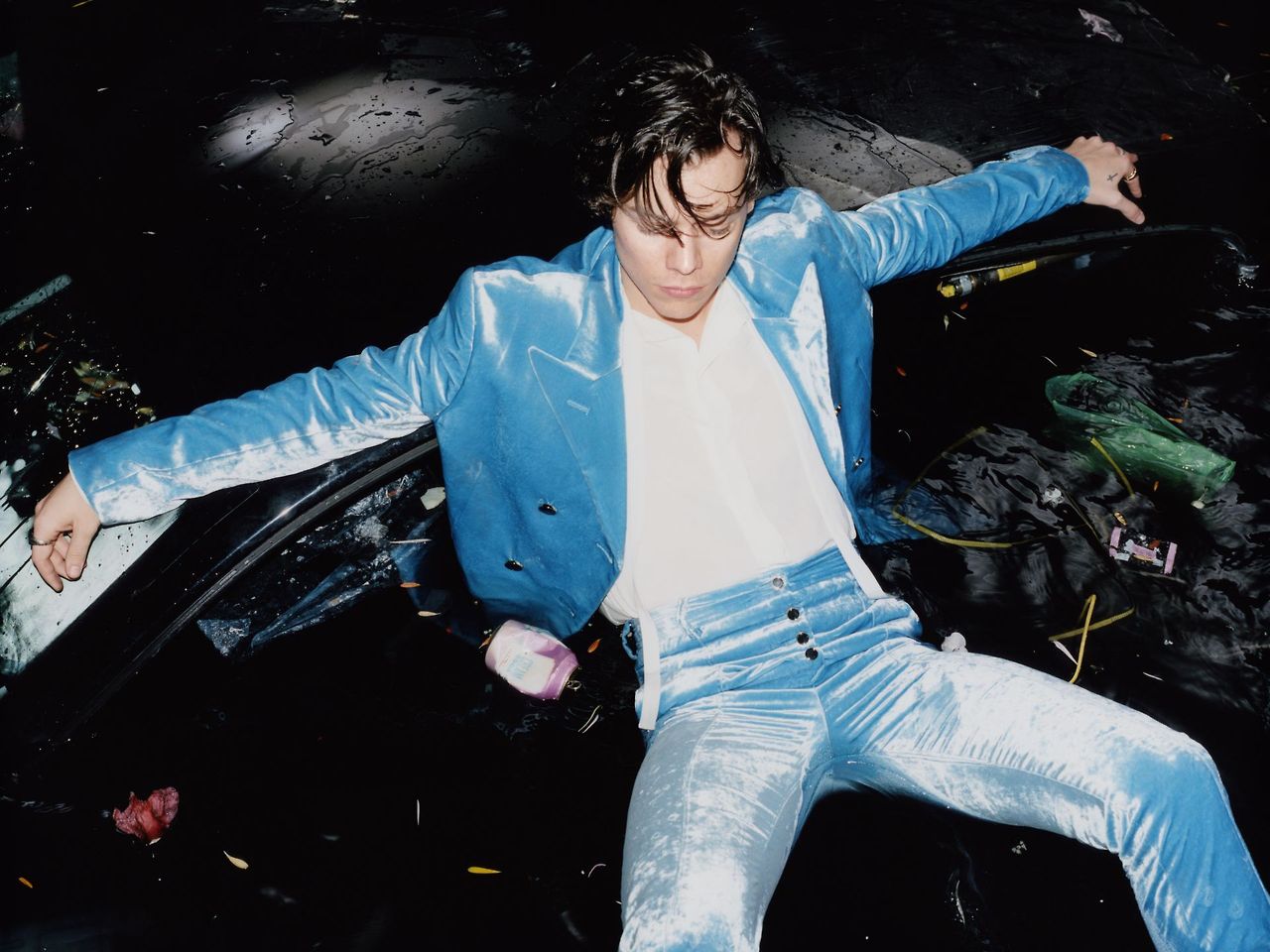Harry Styles’ self-titled solo debut is not so much a departure from the music he created as part of pop group One Direction as it is the next logical step in a career thus far defined by that group’s existence. Any Directioner (the name given to fans of 1D) can tell you the group’s last two records, Four and Made in the AM, were heavily influenced by the the most radio friendly moments of rock’s back catalog. “Best Song Ever” referenced The Who in such a way you could argue that is the song that group is intending to tell you about in the lyrics. The latter singles, such as “History,” were driven more by guitars than digital production. Harry Styles has been crafting a unique take on rock and roll for years, and now he’s in a position to make that sound his focus with an album born from adoration for rock’s pioneers
As first teased when “Sign of the Times” was released in March of this year, Styles debut solo record is a bittersweet collection of rock-influenced pop songs that share stories of heartache in its many forms. Whether he’s wishing to kill the pain of love gone sour on “Meet Me In The Hallway,” detailing the feeling of emptiness one feels when once fiery passion burns out on “Two Ghosts,” or acknowledging the fact he cannot will a relationship forward if his partner is unwilling on “Ever Since New York,” Styles spends much of this record coming to terms with change and accepting there are things that are out of his control. This is a tough lesson for Styles, as his persona through all of this is one of a hopelessly romantic dreamer whose own optimism may be his greatest enemy. He has to mature to survive, both literally and metaphorically, which plays well into the narrative of boy band heart throb turned emotionally-driven solo artist.
When not singing of a broken heart Styles tends to kick up the energy with more straightforward pop rock fare built around stories of women he cannot forget. There’s “Carolina,” a brave soul who left her family behind for life on the West Coast, the undeniably attractive woman who would surely destroy his planet in “Only Angel,” and the women who drives him mad in the best possible way on “Kiwi,” among others. Throughout each story is a longing for freedom and a better understand that directly or indirectly serves as a fitting allegory for Styles’ own relationship with fame. He longs to bare his soul to those who engage with his art, wishing in return that he could have a life of his own outside the glare of the his audience. He wants the option to share his stories rather than feeling forced to by the twenty-four hour news cycle. It’s enough to drive a anyone crazy, but at the same time Styles recognizes it is the life he chose and given the chance he likely wouldn’t change a thing.
If all this leads you to believe Styles is just another former boy band member complaining about his fame and fortune then you must not know much about Harry Styles. If anyone has ever loved being a pop star it’s Harry Styles, and the evidence of this continuing to be true is littered throughout the record. Even the most tragic songs are constructed from tried and true pop songwriting formulas for maximum effect. The chorus to “Woman,” for example, may just be one word repeated over and over again, but there is a melody to the delivery that makes that one word mean everything. It’s good, bad, happy, and sad all at once, and as it plays you can feel the song borrowing its way into your brain. The addiction is immediate, but the relief it provides is immensely soothing. Like all good pop music, the material offers escape through commonality. You are not alone, and if you ever feel you are you can find comfort knowing sometimes Harry Styles feels the same way.
There will no doubt be some who claim Styles can never become a modern version of classic pop-rock crossover stars, like David Bowie, Elvis, or Paul McCartney, because of his boy band origins. They will tell you that certain legends did not need a team of up to six people to write a single song, or that true greats play all the instruments on their records, but none of these frivolous hot takes can deny the simple fact that Harry Styles has created a genuinely great contemporary pop rock record. His work may be a considered reinvention to older listeners, but younger audiences could just as likely think it something new altogether because they haven’t heard much, if any, music from the era Styles draws the most influence from. As a result, Styles’ debut creates an almost ageless sound that reminds us of how unifying great music can be.













